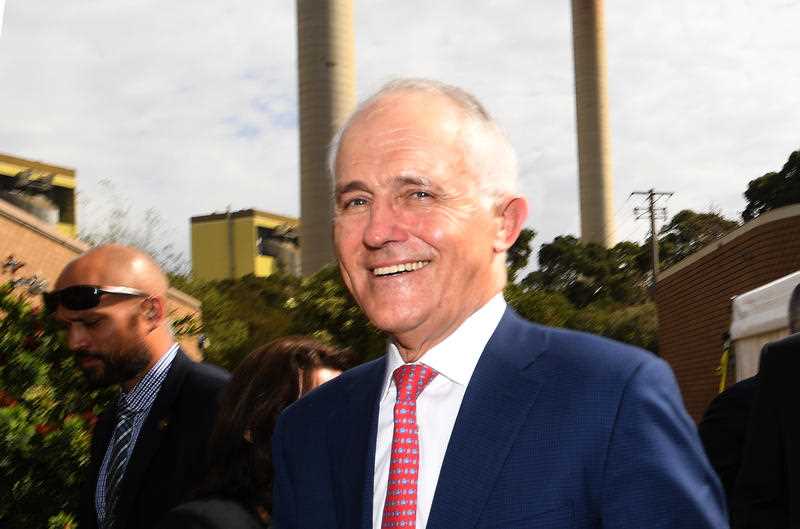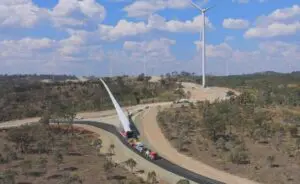
The head of Bloomberg New Energy Finance in Australia has slammed the climate policy of the federal Coalition government, describing it as being built on little more than “hope.”
Speaking at the Carbon Market Institute’s 2018 Emissions Reduction Summit in Melbourne on Tuesday, BNEF’s Kobad Bhavnagri said that – at a time when good policy was most desperately needed – the Turnbull government seemed to be using a faith-based approach to decarbonising Australia’s economy.
“The path now looks really quite clear: for one-third or potentially more of the world’s electricity to be zero carbon by 2030; one-third of light trucks and light vehicles to be electrified by that time; and for the global economy to be one-third more (energy) efficient.
“That is the new business as usual,” Bhavnagri told the conference.
Meanwhile, in Australia, “the (federal) government’s approach to meeting the 26-28 per cent national emissions reduction objective by 2030 is hope.
“A hope that the economy will just continue to more or less accidentally decarbonise,” and hopefully, he added, with the help of “some fluke technologies that we can adopt from other places.
“And everybody in industry should worry deeply about this approach, because it is many of your companies that will need to close for this to accidentally happen,” Bhavnagri said.
“The upshot is, that this strategy has actually worked so far, to achieve the very weak 2020 (emissions) target, which we’re now on track to do, thanks to some favourable accounting treatment.
“But this isn’t very good policy.”
But Bhavnagri wasn’t entirely dismissive of the Turnbull government’s efforts to effect policy change.
“On the upside,” he said, “what’s happening in the energy sector does have some cause for optimism, and the mechanism that is being developed by the National Energy Guarantee actually looks strong.
“It looks like it has the capability to achieve the required emissions reductions … and it does display an innovative method which manages to not upset some of the crazies that reside in the government’s benches.
“But of course the target is very, very weak. And (a target of 26 per cent reduction in emissions for the power sector) is a problem for not only the power sector, but also for the rest of the economy.
“Because the power sector is really on track to achieve about a 23 per cent reduction on 2005 levels, thanks to existing policies, thanks to the RET and the rollout of rooftop solar.
“So between 2020 and 2030 over a decade … about a 3 per cent reduction is set to occur, which is pitiful for the power sector and will be done on a business as usual basis.
“The thing that should concern everybody in this room, is that the lack of (emissions reduction) in the power sector transfers that burden to other sectors of the economy … which don’t have the technology which is already economic… to readily decarbonise.”
And Bhavnagri wasn’t the only speaker at the Summit’s morning plenary to speak plainly on the shortcomings of policy makers.
The head of energy and environment at the International Energy Agency, Dave Turk, told the Summit that the 2017 uptick in global emissions, while not unexpected, should be seen as a wake up call for governments all around the world.
“We are not nearly having the policy signals we need around the world” Turk said, if we are any chance of keeping global warming at or below the 2°C mark scientists say we must aim for.
ALP Senator Penny Wong, who also spoke, was also – predictably – critical of the government’s climate record.
Wong, who was climate minister when the Rudd government’s CPRS was derailed in 2009, has also watched the former Gillard government’s Clean Energy Future repealed by the Coalition.’
“I keep waiting for someone from the BCA (Business Council of Australia) to tell me why it’s a great big tax on everything,” quipped Wong – who is now shadow foreign minister – at the start of her talk.
She said that Australia had effectively lost a decade in the race to prevent dangerous climate change, thanks to political ideology and a federal government that “can’t countenance” renewable energy.
“But I hope we’ve learned our lesson. Because it’s harder now.
“What have we achieved after a lost decade. From a national perspective, we’ve increased the cost of the transition – that’s fundamentally what we’ve done. …We’ve made everything harder,” she said.










